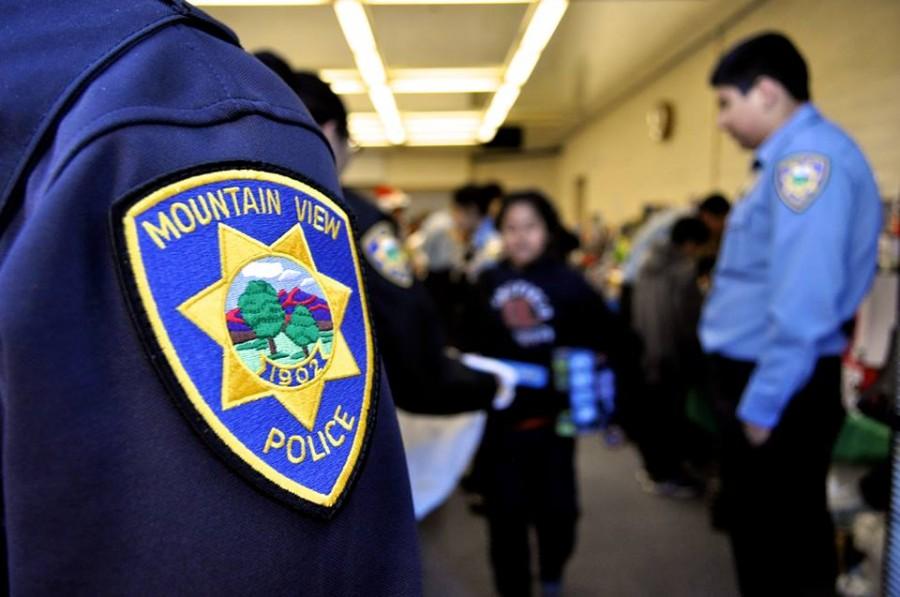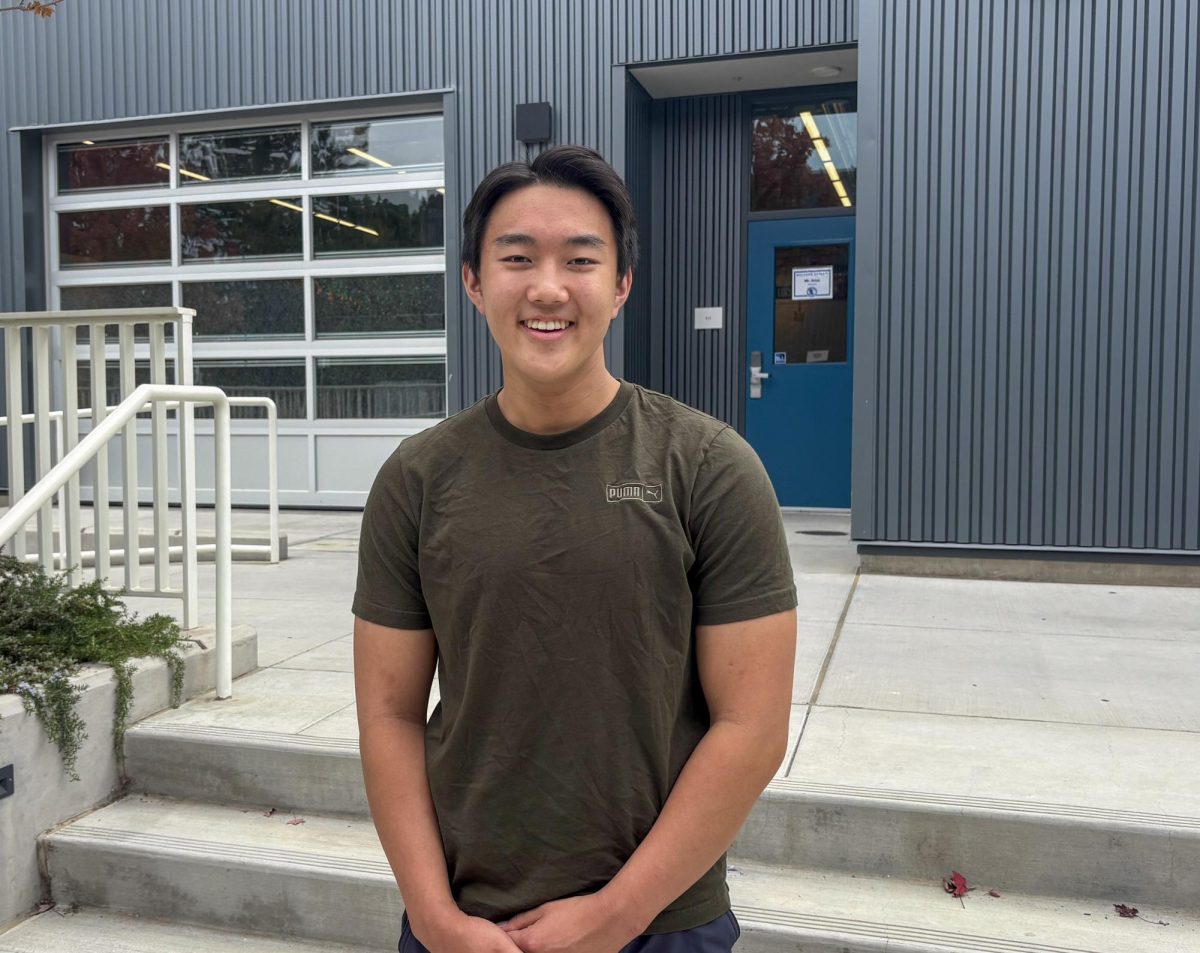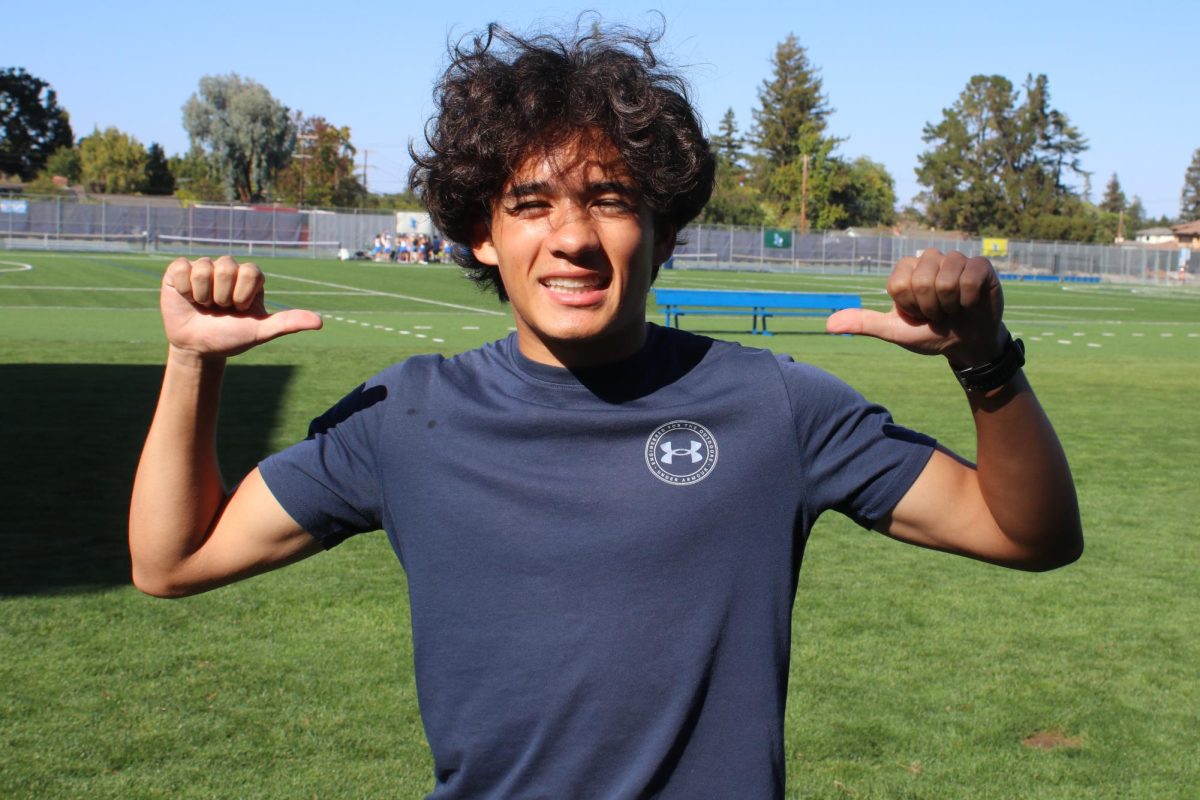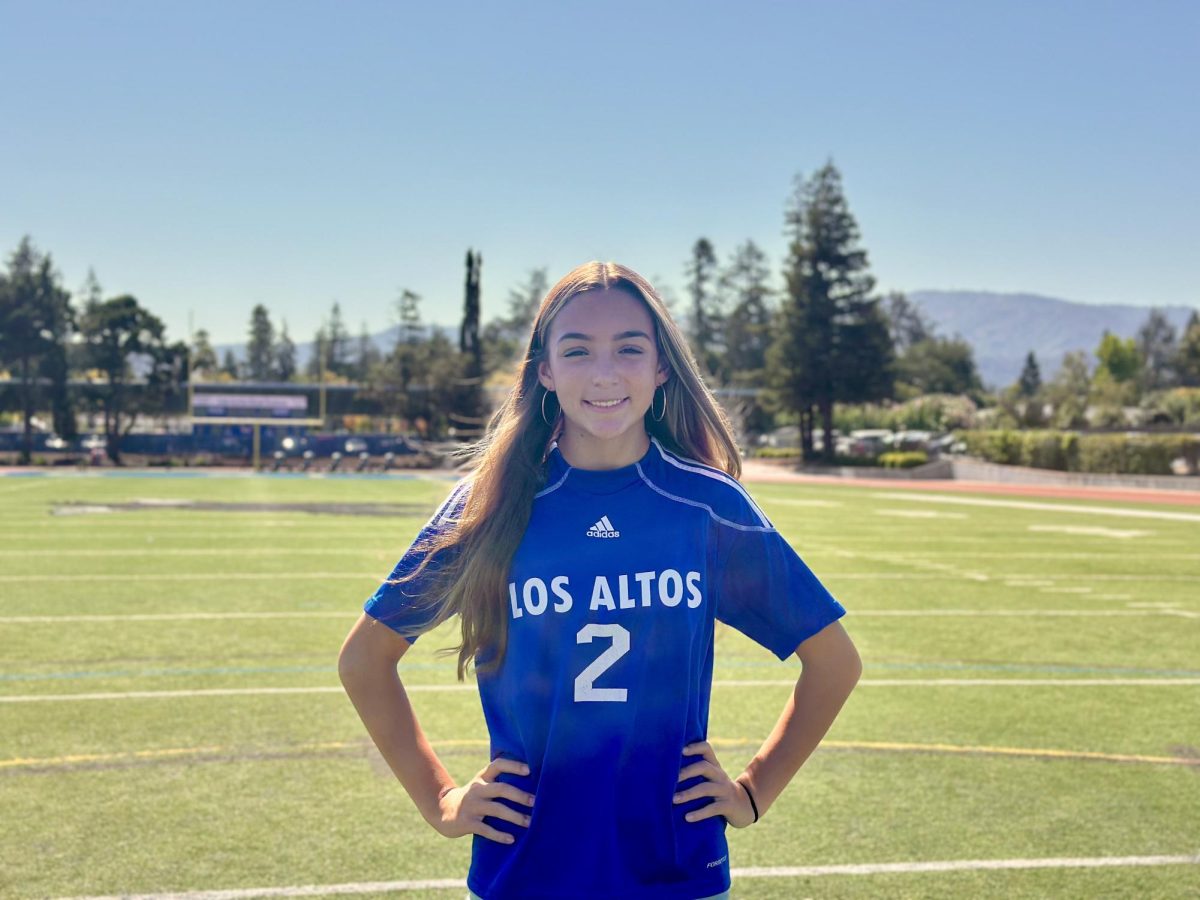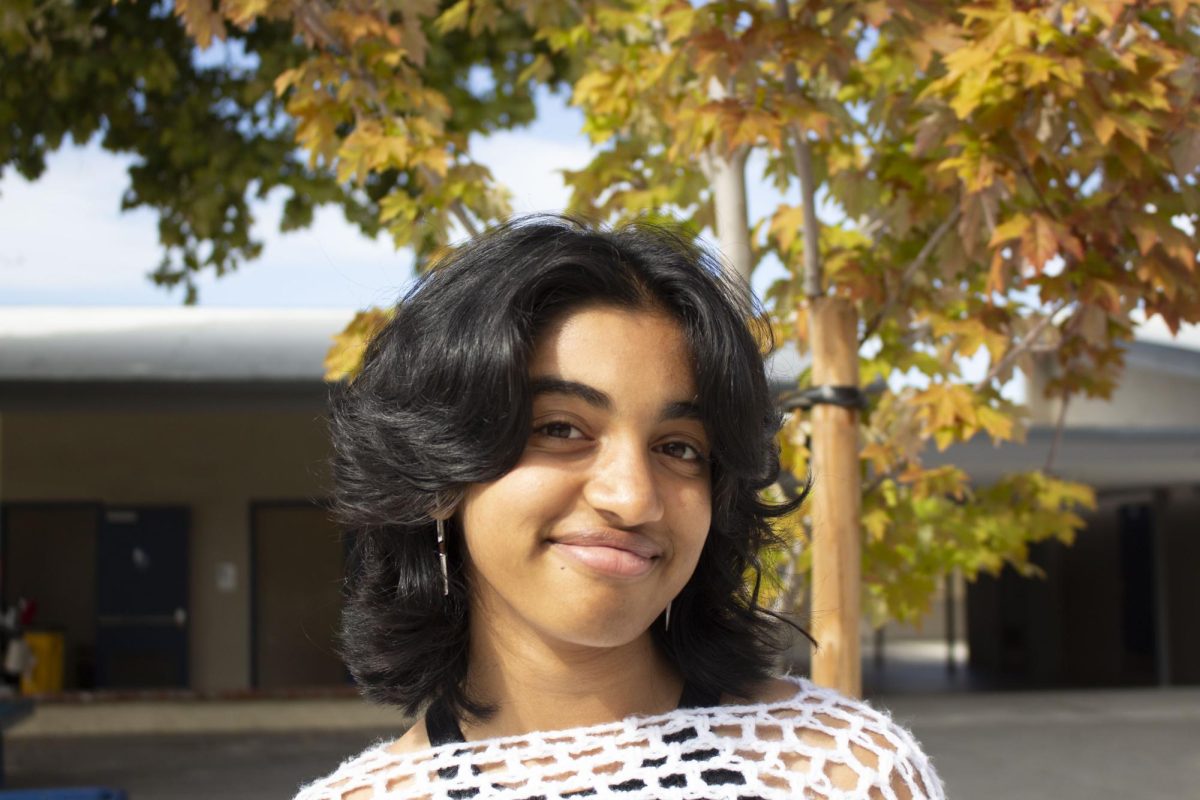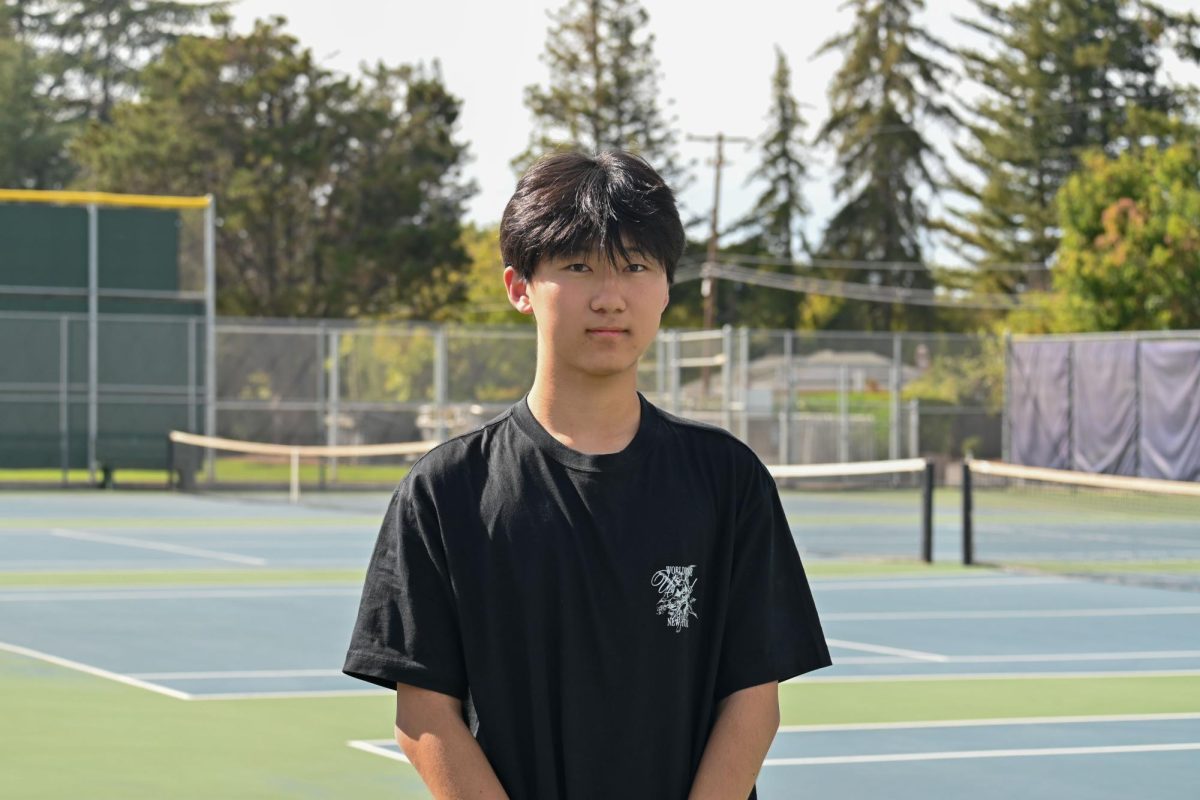Meet Officer Rodsheeta Smith, a school resource officer (SRO) of the Mountain View Police Department (MVPD). Smith, along with her partner Officer Bobby Taylor, are the main law enforcement presence at many middle and high schools in the area, including Graham and Crittenden middle schools; Mountain View, Los Altos and Alta Vista high schools; and Terra Bella Academy. Smith primarily works at the middle schools, though she does visit the high schools when she has time. Her partner, Taylor spends most of his time at the high schools in the area.
While school resource officers are employees of local police departments, their roles are in many ways different from that of a traditional police officer, especially in the way that they interact with youth in the community. The Talon caught up with School Resource Officer Rodsheeta Smith to find out what students should know about these officers who constantly walk the line between the MVPD and student communities.
The Talon: How do you balance your role as law enforcement with maintaining good relations with students?
Smith: While obviously our code of ethics is number one, I also understand that kids especially don’t know how the law works and they don’t understand that we are human too, that we go home and have dinner with our families, shower, work out, have favorite foods and kinds of music. When I think of the youth, I always think that they don’t fully understand who we are and what we do. When I do have to enforce something, I always take a lot of time to explain—for starters, why I am here, why I’m on your school’s campus and some of the boundaries—like the things I can do and the things I can’t do. Even some simple things like eating in the cafeteria with you guys, especially with the middle school kids, [are appreciated].
Talon: What do you think is the role of the school resource officer in forming student opinions of law enforcement?
Smith: I think [building positive relations] with students is important because everyone grows up in different home environments and in some families, they have negative experiences with the police and that kind of trickles down to the kids.
Especially [when we went to] a preschool, we had a situation where a preschooler had developed a fear of the police, not because of a necessarily negative experience but [because] an older sibling of theirs had had a medical emergency, and the fire and police department came and transported them to the hospital. They thought that the police and fire department had taken their family member away, so when we went in to teach a safety class, the 4-year-old remembered this experience that they had. We took it piece by piece and broke it down for them that it is okay that that happened, and that we are here to help and not hurt anyone, and that we know that everything looks big to them because they are so little. I think it is important to build those positive relationships with the kid so that way, as they grow up, [they know that] we’re there for [them]. We are not scary or here to make your lives difficult, we are here to help.
I think that by exposing kids at a young age to the positive side of law enforcement, it makes it easier because if they ever have to be in contact with us for something not so pleasant, they don’t have all this anxiety and preconceived notions about what is going to happen.
Talon: What are your encounters usually like with high school students? What are some examples of both positive and negative encounters?
Smith: Our encounters with high schools [consist of] showing up at lunch and getting to know everyone, figuring out “What do you want to do after school, what do you want to be, do you need help with something?” [That makes up] more of the mentoring aspect.
Then we are also there a lot for safety issues: like someone brought a weapon on campus, someone brought drugs on campus, there is an overdose happening, there is a medical emergency occurring. A lot of parents will say, “Hey, can you meet with me and my child because they are having a lot of difficulties at home?” Also, [we step in for] mental illness instances where a child may be experiencing some kind of mental breakdown or crisis, and then keeping outsiders off campus as well, so we are here for things like that too.
Some of the negative experiences would be a recent observance of drug use and abuse and alcohol abuse. Those have been the most concerning to see occurring in young people even as young as ninth grade. Our positive interactions have really been the explorer program [and] mentoring programs, [in which] our high schoolers decide that they want to give back to the community [through service].
Talon: On the whole, does it seem like the majority of the instances you deal with have to do with students knowingly making bad choices, or is it more influenced by peer pressure and/or not understanding the law itself?
Smith: A lot of it is peer pressure [and] a lot of it is at this age, sometimes young adults think that they are invincible. Even though they have seen bad results from other people, they don’t think that it will ever happen to them. They think that “Oh, that happened to someone else, but I did it differently so that won’t happen to me.” But no, it could happen to you as well.
A lot of it is just impulsivity—at this age, if you are upset about something or something made you angry, you react to it instead of taking a couple seconds to calm down and think about what is the best way to go forward. You are almost adults but not quite—so it’s like, “I want to grow up faster than my emotional and physical limitation will allow me to.” On a rare occasion, [students] will be like,”‘Oh I didn’t know that I would get in trouble for doing that,” and it’s our job to say, “No, no, you will. You can’t do that.”
Talon: What should students know about SROs?
Smith: They should know that we are specially chosen to go into a department that specializes in working with youth, so we are like a lifeline between the youth and the police department. We are always advocating for youth and looking for a positive outcome, even from a negative circumstance. We see young people that are afraid of the police or think that we are out to get you, or to just see you crash and burn, [but] that is so far from the truth. We are actually really disheartened when we have to make an arrest or see someone get expelled or suspended.
We just want the youth on campus to see us as a resource, someone who even if you don’t always understand what we are doing, is always on your side. We are always willing to help, whether that means we have to stay a little later to facilitate something, or discreetly get with your family. We maintain confidentiality—we don’t go around campus telling other kids their business. I want them to know that we are a positive resource and we come to care about you as young people, that [our relationship with students] is probably the main thing. It is very different than an officer that you have never met before. We are excited when we see you guys graduate, go to college, become young people in the community in a positive light.



